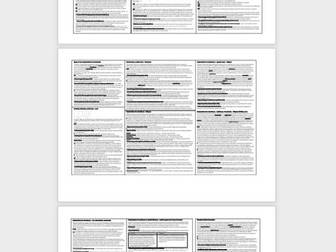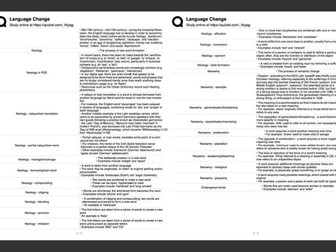
A Level Psychology Knowledge Organisers (P1)
These knowledge organisers cover all content and evaluation points for AQA A Level Psychology Paper 1, to include the following topics:
Memory:
Atkinson & Shiffrin’s (1968) multi-store model
Research into STM and LTM
Baddeley & Hitch’s (1974) working memory model
Types of LTM
Explanations for forgetting - interference and retrieval failure
Factors affecting the accuracy of EWT - misleading information and anxiety
The cognitive interview
Social Influence:
Types of and explanations for conformity
Variables affecting conformity
Conformity to social roles
Explanations for obedience - the agentic state, legitimacy of authority and the authoritarian personality
Minority influence
Explanations for resistance to social influence - social support and locus of control
Social change
Attachment:
Caregiver-infant interaction
Stages of attachment
The role of the father
Animal studies of attachment
The learning theory of attachment
Bowlby’s theory of attachment
Ainsworth’s ‘strange situation’
Bowlby’s theory of maternal deprivation
The effects of institutionalisation
Psychopathology:
Definitions of abnormality
Phobias - definition and clinical characteristics, the behavioural explanation, behavioural treatments
Depression - definition and clinical characteristics, the cognitive explanation, cognitive treatments
OCD - definition and clinical characteristics, the biological explanation, biological treatments
These knowledge organisers cover all key case studies in detail.
I would recommend printing these knowledge organisers on A3 or A2 paper.

